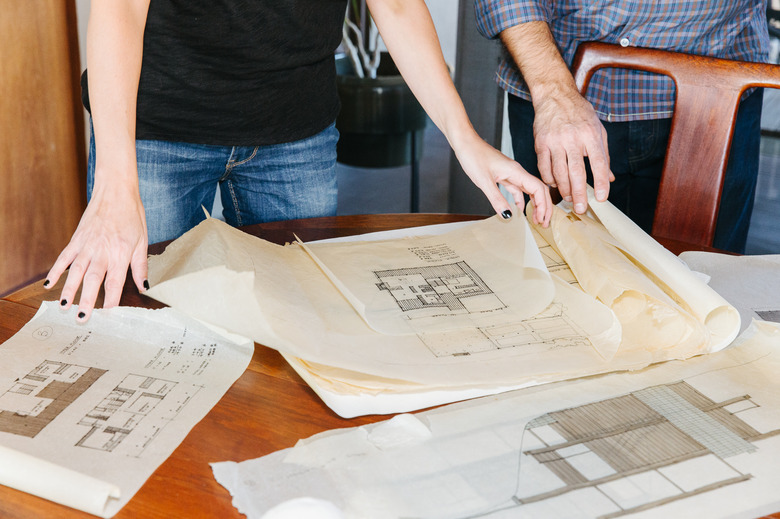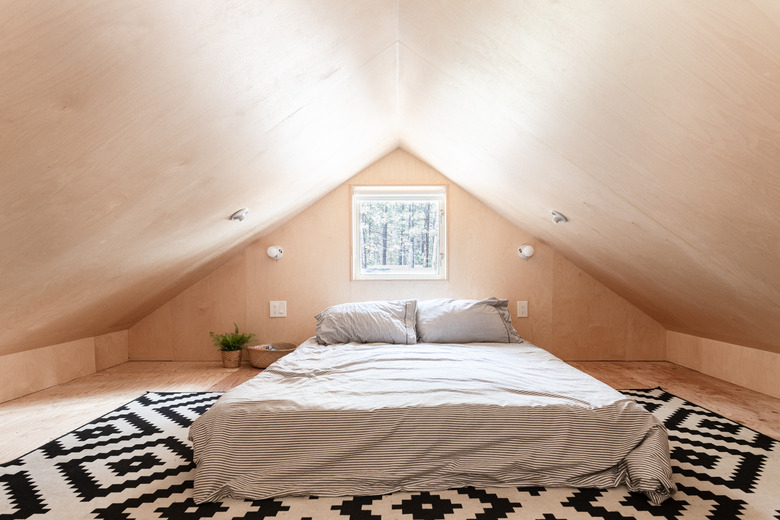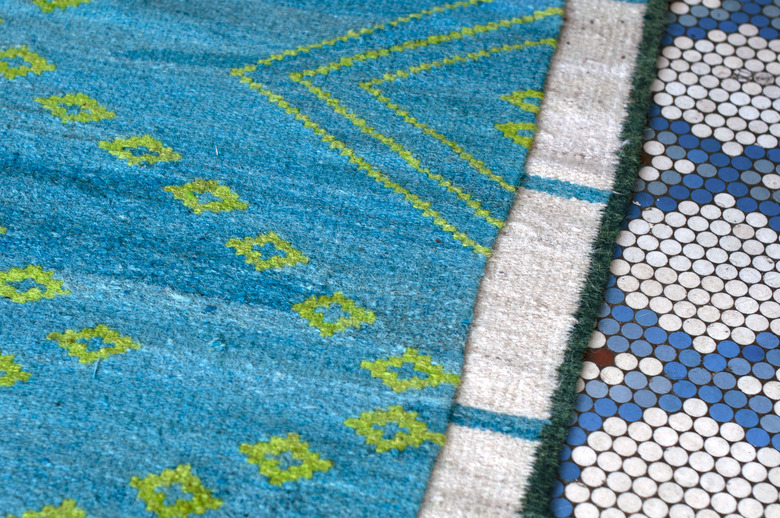Do You Actually Need An Architect, Interior Designer, Or Contractor For Your Reno?
I have a dark, dated Jack and Jill bathroom in dire need of renovation, and I flip flop between just calling a contractor and investing in the expertise of an architect, maybe even an interior designer (much to my husband's chagrin). The goal, obviously, is to do the reno once, and do it well. But how do you know which home reno expert you need?
I asked Stephanie Ragle of office42, an architecture studio in Los Angeles, for her advice. (Full disclosure: office42 renovated my kitchen, master bath, and patio several years ago — and I've been devoted ever since). When she and her husband, Ben, first opened their Echo Park studio 12 years ago, they would see homeowners walking into the Department of Building and Safety with hand-drawn sketches, practically on the back of a napkin. "The city would help them cobble it together and get the thing done," says Ragle. "There's no tolerance for anything like that anymore."
Now, she finds, office42's services are more and more in demand, to help navigate the ever-complicated LA building code and bring together the various experts needed, especially on bigger renovations and residential additions. But Ragle also knows when she's not needed — and that's 100% OK by her.
When do you need an architect?
When do you need an architect?
The answer — always! — is that it depends. In LA, for one, the ever-changing building code has created a greater demand for architects. It also depends on scale. If it's a whole-house reno with massive structural changes, you'll probably need more than a drawing from a structural engineer. If it's a modest bathroom remodel and you really just need a permit pulled? You might be wasting your money and an architect's time.
Architecture studios like office42 provide schematic design through the end of construction, coordinating, and managing all the consultants needed for any given job, from contractor to surveyor to geotechnical engineer or what have you.
There are different ways to think of the architect's role: a shepherd, making sure everyone is moving in the same direction, and the band leader, keeping the project in harmony (and on time!). But I like Ragle's metaphor best. "When we're involved, it's like the three branches of government. There's the homeowner, the contractor, and the architects. It's checks and balances," she says. "We're checking that everything is going to plan. Contractors are doing the work. The owner is paying for it." Together, each branch pushes the project, including the design, budget, and timeline, forward.
There's also a higher commitment to the overall design when you have an architect on board. Ragle was on a project where, after opening up a wall, it was clear they needed to replace a beam. The contractor, alongside his engineer, suggested a 2x12, which would require a drop in the ceiling. Ragle found a different beam that was more efficient, less deep, and only cost a few hundred dollars more, but would result in a perfectly smooth ceiling. "That's the thing: a contractor is, 90% of the time, making decisions based on money," says Ragle. "Architects and designers are making decisions based on the good of the project."
When do you need an interior designer?
When do you need an interior designer?
I think of interior designers as experts in fixtures, furnishings, and finishes — the person who will convince you that, yes, terrazzo will look amazing next to this abstract wallpaper (and they'll be right!) and who will guide you to the right sized sofa and big enough rug and the proper layers of lighting.
In terms of renos, there's quite a lot that architects and design-minded contractors can bring to the table in terms of choosing materials that are high-quality, long-lasting, and beautiful to the eye — which means an interior designer might be gilding the lily. And, on the other end of the spectrum, there are some savvy interior designers who are really comfortable with construction. "They can act as architect-light," Ragle says, "especially for interior-only renovations."
More often, though, Ragle finds herself working hand-in-hand with a like-minded designer they collaborate with often, who has her own experience, connections, and energy that she brings to each project.
"There's so much more layering to our lives and to design now," says Ragle. "And interior designers are applicators of layers of things." Whereas once she may have eschewed wallpaper or molding in favor of more honest materials like concrete and wood, her perspective has evolved. "We see how those layers of details are also what make a space unique to the client and their own identity and their own culture. So we value that now, and because we value it, we still want to control it."
Which is to say, in these types of collaborations, there is still a distinct design vision from the architect.
When do you need a contractor?
When do you need a contractor?
You almost always need a contractor. But when will a contractor alone do the trick?
Again, it's about scale — smaller, simpler, well-defined projects can often be handled well with a skilled, design-minded contractor. It's the contractors themselves who are the key to the whole thing.
"It's all about that relationship, that trust in their ability," Ragle says. "If you have trust in a person and you have a good relationship and good communication, things go great! But if one of those things is missing, that's where people end up hating their contractors."
Can you go rogue?
Can you go rogue?
Of course, in some cases, any homeowner can go downtown and pull their own permits and go the DIY route, says Ragle.
"If you know what you want, you know it's minimal and you don't want the help and expertise, go for it. This is your house," says Ragle. "This is people's purview and ability. It's OK to not waste someone's time and effort or your money, if it's not what you value. What we do is still ultimately a service."
What you value, says Ragle, is ultimately what will define the choices you make. "We can convince ourselves of the rightness of our choices. If you think you need to save money, you're going to find that person who is good enough for you and at the price point for you," she says. "Everyone will make the best of the thing that they believe is right."



